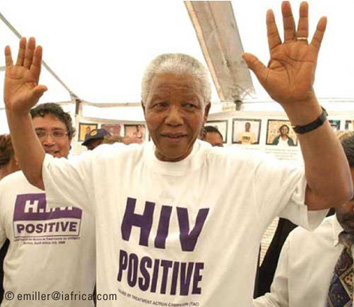|
There is nothing that replaces the gravitas of seeing a ‘real’ object or document – rich with story and history, often transported from another time and place – a piece of evidence that is irrefutable and unchanging. The Museum of AIDS in Africa is a new museum being planned for South Africa where collections are at the core of the experience. Medical and ethnographic artifacts, documents, photographs, audio/visual material, art and an archive of personal stories and ‘remembrances’ will dispel the mythology associated with AIDS in Africa and its origins. Through presenting the concrete evidence of the history and epidemiology of the disease that has claimed millions of lives and which to date has been accessible to only select researchers and scientists, the Museum aims to make tangible what too often has been seen as an impenetrable, omnipotent and unconquerable disease.
The Memory Bank will be a place where individuals and families can ‘store’ a memory box – tangible remembrances of a person they have lost to HIV/AIDS. This is particularly poignant in a context where millions of children have been left orphaned, often with no way of safekeeping the memories left to them by departed loved ones. This traditional function of the museum and archive – as a place that preserves what is ‘of value’ from the past – is evoked here on a deeply personal scale.
|
|
There will be four pillars of the AIDS Museum: a science and history museum; a place for memorialization; a public space for dialogue and reflection; and an archive. It is hoped that ‘touching AIDS’ through making its collections accessible to members of the public will bring HIV/AIDS out of the realm of the unimaginable (and often the unspeakable) into the realm of the known. The Museum hopes to deeply move its visitors, empower them with understanding and knowledge, help them to recognize that they are neither alone nor invisible, and provoke a more compassionate and practical response to HIV/AIDS across the continent.

Museum of AIDS in Africa collections will include this T-shirt worn by former South African president Nelson Mandela.
|